
Dear Friends,
We are beginning a new year, a moment of reflection and new commitments for many of us. So, I wish you a happy new year like so many have written to you in the past few days.
But all these well-meant wishes raise the question of what that "happy" is that we all wished for each other in 2024. Does it mean going to wild parties, dancing all night, and remembering the following day not much more than a general impression that you were so happy? Or would you associate true happiness with a meditation session in a monastery? I wonder if it is as individual or short-lived as that. Let's explore from a global and personal perspective.
The global perspective
We share this planet with eight billion people and an estimated eight million species. Not all of those people are happy; many millions live in war zones, are impacted by climate change, face poverty and hunger, or lack fundamental freedoms like being allowed to read this newsletter or having the right to voice their opinions.
And we may assume that hundreds of thousands of species are pretty unhappy since these are threatened by extinction. Each species results from an unimaginably long line of generations tested to survive and reproduce until only the best of the best made it into the unique species they are today. But if these species' habitats are taken away from them, fragmented, exploited by humans, impacted by climate change, invaded by other species, overfished, deforested, or in different ways unrecognizably changed, at a pace much faster than evolution can adapt to, they may die out. And dying out is very definitive; it's as tipping as a tipping point can be. Such a species joins the ranks of the dodo, Tasmanian tiger, woolen mammoth, and the innumerable number of much less charismatic icons of the destroyed natural world. There will never be a Happy New Year for any of them.
Can I be happy while elsewhere, other people experience deeply traumatizing events? The sad, short, and unsatisfying version is that I feel happy now, even after reading this morning's newspapers. There has never been any newspaper in my lifetime that didn't report at least some stories about people experiencing war, famine, natural disasters, crime, or all kinds of other forms of unhappy events. Still, it hasn't stopped me from being happy.
And I feel happy today, in cozy surroundings with loved ones around me and Luna sleeping next to me, even while knowing more than I would like to know about the structural destruction of our planet's living conditions.
But there are two big "ifs" to add to these lines. First, I struggle with the contradiction between global misery and personal happiness. If the world were fairer, safer, and better governed, I would be much happier; it's an additional motivation to work towards a better world.
And there is a second "if" about the future. I grew up in the 1970s when the future held the promise of only getting better, but I now see a generation full of doubt about such a promise. While there is still tremendous - but underreported - progress in many fields, such as a global drop in infant mortality or illiteracy and an increase in renewable energy or life expectancy, there are the risks of climate change, biodiversity loss, and geopolitical tensions weighing heavy on the future perspectives of today's youth. If the future for the next generations would be less worrisome, it would increase my happiness.
The individual perspective
Let's step away from the global spoilers of happiness like climate change and worries about the world we leave for our kids and focus instead on what each of us needs to be happy.
Advertisements may give you the impression that you must spend money on products and services to feel happy. Watch an average soft drink commercial, and you see people having a great time as soon as they drink (and thus first buy) their soda. You might be mistaken that the drink also buys you youth, great looks, and equally gorgeous friends. The following commercial is about washing powder, and I'm always amazed at how much shared happiness it gives the women (yes female and yes plural) doing the laundry. I doubt if I smile that much when I fill the washing machine.
You may easily be mistaken, thinking your happiness depends on more products. And that feeling comes with worries about missing out once you can't buy the product anymore or the jealousy of others buying more of it than you do.
Reading articles about happiness often starts with moving away from consumerism, dependency, and comparing yourself to others. It's then followed by motivational texts about self-belief and the notion that true joy is derived by liking the person that you are, and you should not allow others to dilute your sense of self.
But do you find happiness by focusing on yourself, or do you become happy by interacting with others? There is a vast difference between these two views. The self-belief approach seems more trendy, but in that case, you don't need to send or receive those "Happy New Year" messages; if it's up to you to find that inner peace, you might just as well address those wishes to yourself.
I wonder if the pandemic has strengthened this approach of finding happiness by diving deep into our own souls. The mindfulness movement started much earlier, and I remember the many available self-help books from the pre-pandemic days. But the days of isolation may have strengthened this movement focussed on your mind-body control.
This trend goes hand in hand with a change towards a more isolated society where more than half of Americans eat their meals alone. I recently heard of young people going out for a weekend; after arrival, the boys retreated to their separate sleeping rooms to play online games instead of playing sports or building a campfire. In 2017, Ruth Whippman quoted in the New York Times a study of the Bureau of Labor Statistics, showing that the average American spends less than four minutes a day "hosting and attending social events," a category that covers all types of parties and other organized social occasions. She continued: "That's 24 hours a year, barely enough to cover Thanksgiving dinner and your own child's birthday party." If you count all social communication, including arguing about who will prepare the dinner or walk the dog, Americans need only half an hour a day for that. This is far less than the three hours per day spent watching television.
Most evenings, before falling asleep, I first focus on my body and relax. I found that a good indicator is the muscles in my jaw; if these are still tense, I should relax more. But then, before falling asleep, I return to the Camino de Compostela. I have now twice walked the month-long ancient pilgrim route. My memories often start with my private spiritual journey, just as my days in Spain usually started with a few hours of walking alone. I love that quiet time in nature, watching the sunrise, the colors returning, and the world waking up. I wouldn't walk another Camino if it didn't include many of these memorable private moments of beauty and silence.
But then, there are the memories of the other Camino experience: meeting fascinating people from all walks of life and all over the planet. Long talks during long walks, where any possible subject is discussed. During breaks in cafes along the route, others join, and the groups mix. When the walking is done, pilgrims meet in the hostels and spend more time together.
When am I most happy? Is it when finding the inner happiness in those early morning walks, when I try to leave when others are not around so that I have the path for myself, or those moments later during the day when making new friends.
For me, the answer is both. I wouldn't want just one or the other option. Being alone for many weeks would be too dull, but I do not wish to have people around me all the time. The freedom to choose and the mix of impressions make me happy.
And that conclusion doesn't correspond with academic studies. I'll return here to the earlier quoted article in the New York Times:
"Study after study shows that good social relationships are the strongest, most consistent predictor there is of a happy life, even going so far as to call them a "necessary condition for happiness," meaning that humans can't actually be happy without them. This is a finding that cuts across race, age, gender, income, and social class so overwhelmingly that it dwarfs any other factor.
According to research, if we want to be happy, we should really be aiming to spend less time alone. Despite claiming to crave solitude when asked in the abstract, when sampled at the moment, people across the board consistently report themselves as happier when they are around other people than when they are on their own. Surprisingly this effect is not just true for people who consider themselves extroverts but equally strong for introverts as well."
This research leaves me puzzled. I wrote this, as the article calls it, "in the abstract," and nobody sampled my feelings about happiness "at the moment." Still, I'm pretty confident that if someone would stop me when walking alone along a canal on the Meseta where I see the upcoming sun reflecting on the calm waters that mirror the trees on the other side and ask me to score my happy feelings, I would give it a ten. A sense that can't be beaten by a cozy evening in a bar however much I have enjoyed those evenings too and may have given high marks for the happiness score of those moments.
You likely never received such an extended version of a "Happy New Year" wish. Remember that nobody defines what happiness should mean for you. A global happiness for all, or just a happy new year for you; it could be inner happiness or shared happiness. Maybe it is all of the above: it's up to you.
But whatever your preference is, I hope you will be happy in 2024.
Speaking of which, increase your and my happiness by upgrading to a paid subscription!
Or my Patreon posts may make you happy; you can take a free trial via this button:
What does a happy 2024 mean for you? Use the comments button:
Make a friend or family member happy by giving a subscription:
Or buy me a coffee:
A Short Tale of Quiet Rituals and Tender Moments
Outside, it is cold, humid, and windy; the winter darkness slowly transforms into the first morning light. Inside, I wake up and watch the solid, white-painted beams that support the roof. Luna has been awake for hours, jumping on me a few times, asking for attention and cuddles, or walking downstairs to return only minutes later and inform me of her di…
The Climate's Ticking Clock: A Personal Journey from 315 to 420 ppm
This year was likely the warmest of the past 100,000 years. Formulating it this way in my opening sentence sounds like living to witness this moment is like winning the national lottery. However, the reality is less joyful, and a culmination of misbehavior should never be treated as a celebratory event.
Notes:
https://www.thoughtsonlifeandlove.com/happiness-depends-on-you/75684/
https://www.nytimes.com/2017/10/27/opinion/sunday/happiness-is-other-people.html


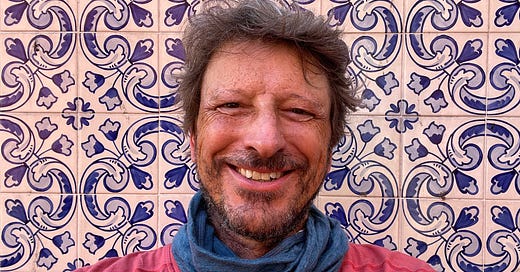


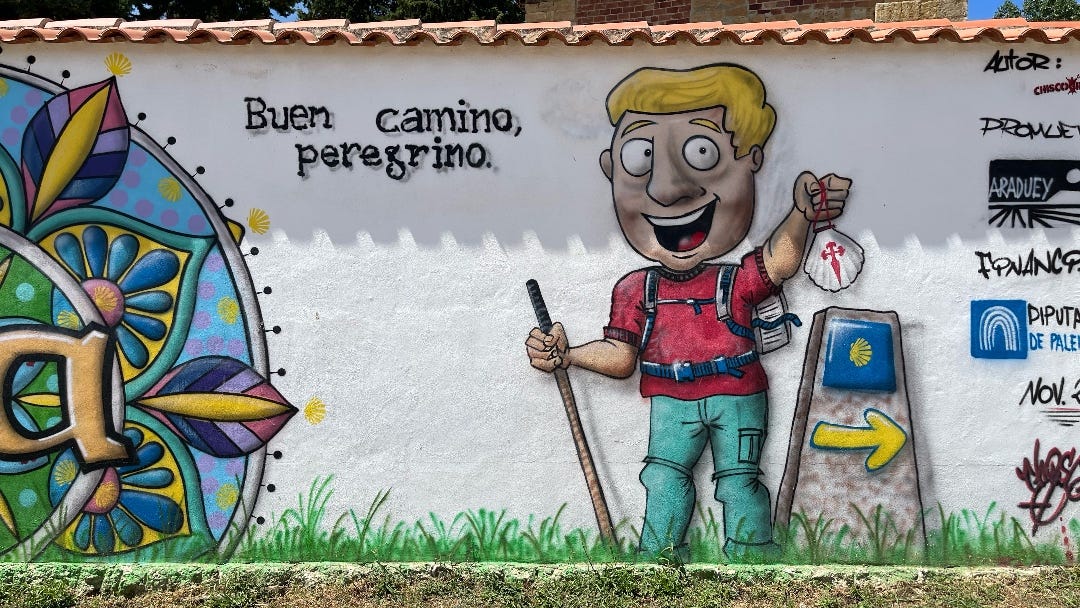
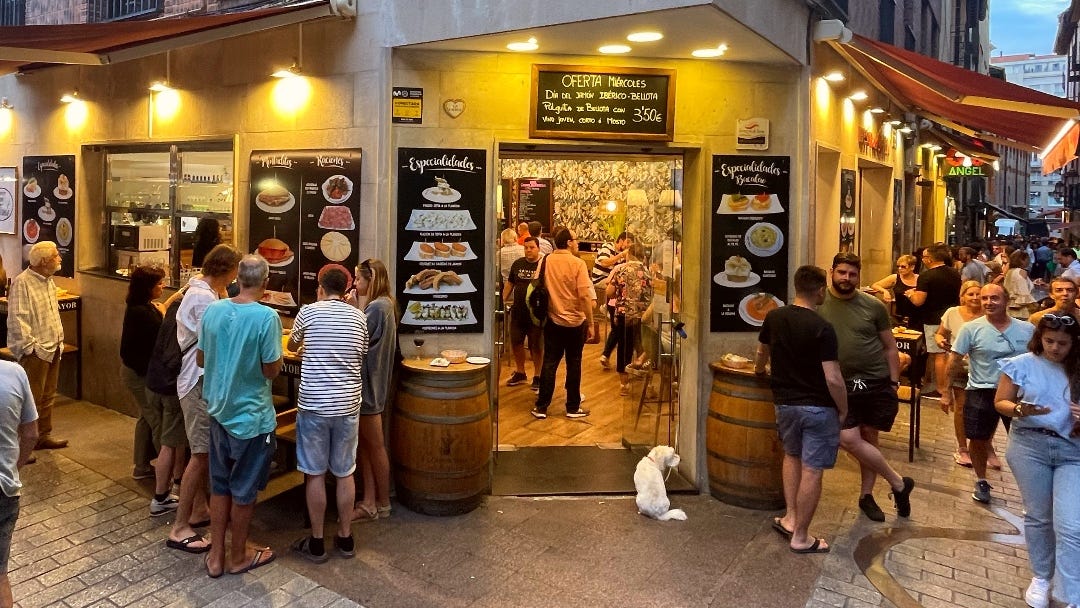


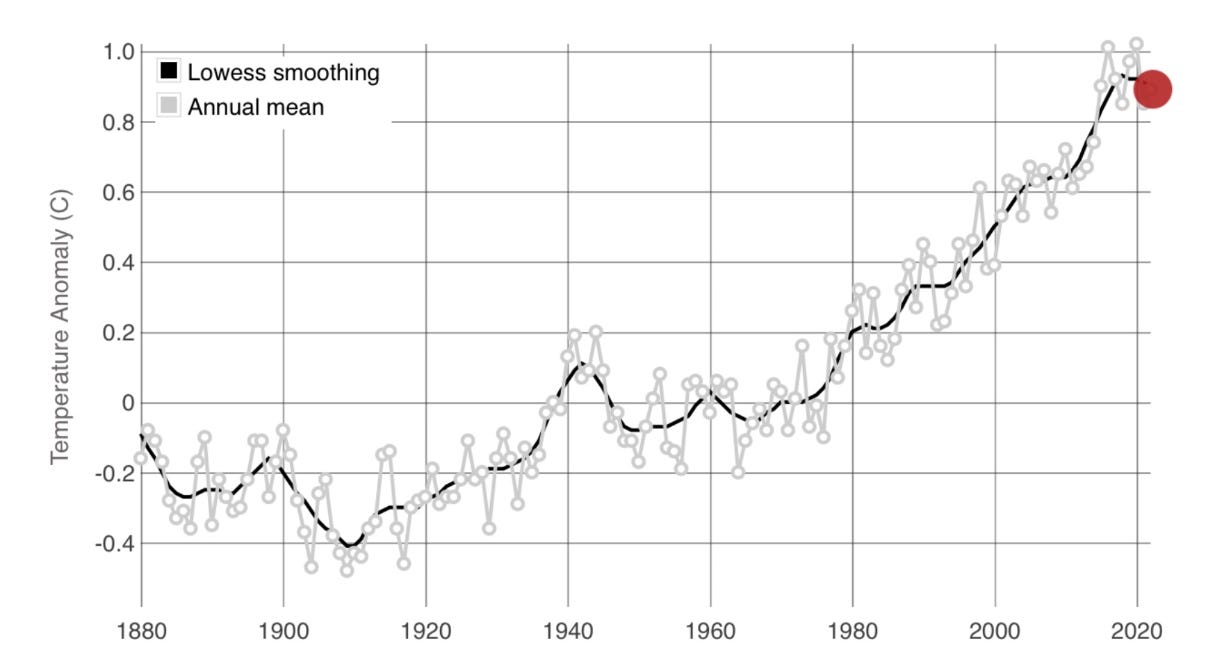
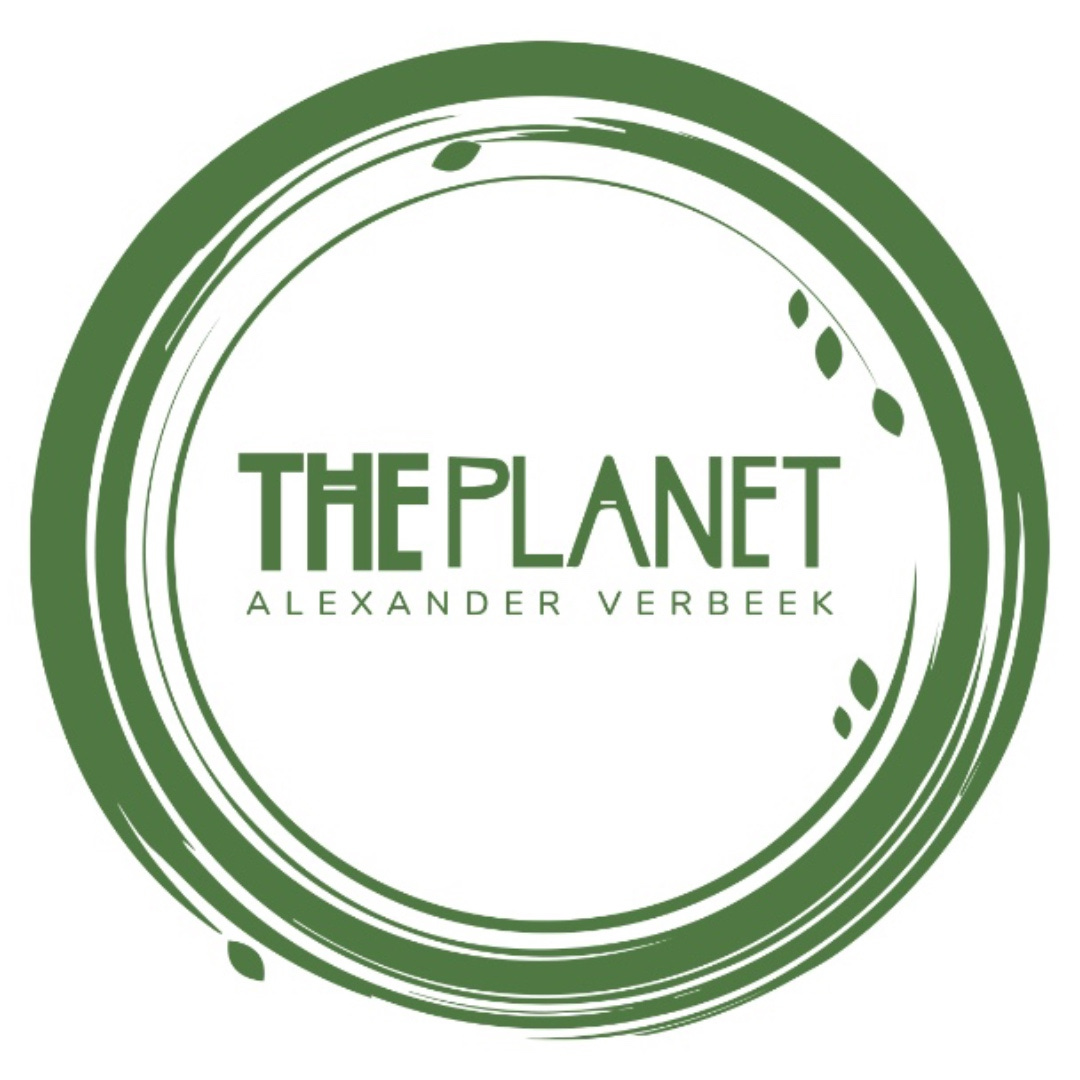
I just stopped writing my own newsletter to read this and I'm glad I did. Thank you and Es guets Nöis to you too. I just realized that in Swiss German we say "a good new year". Now considering which I prefer.
I love what you said about happiness. I've written about happiness myself and won't repeat it all here. I'm generally happy - a lot happier than this time 4 years ago. And, I am happy because I've learned to feel, accept and embrace all those other emotions humans can experience. That to me was the key to happiness. Happiness does not/can not exist without them.
Walking alone early in the morning - yes, please! I totally understand what you mean. I'm the same way.
Thank you for this!
This makes me happy 😊